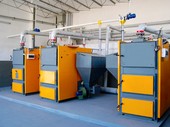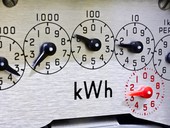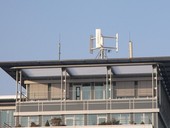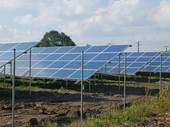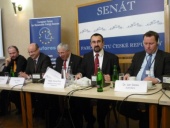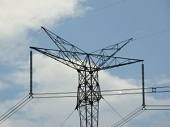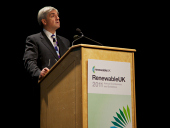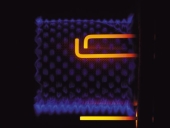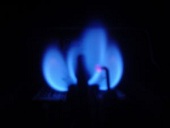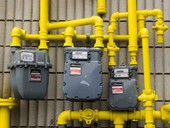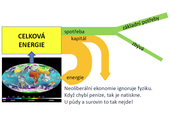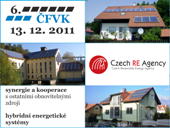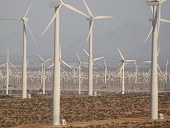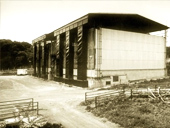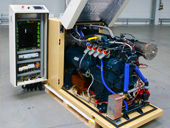The amount of volume coefficient depends on elevation of location of gas consumption and the temperature of gas flowing through the gasometer. In this paper we describe the procedure by which you can check that the coefficient of volume on the invoice is correct. The coefficient is one of the factors that affect your cost of gas.
Archiv článků od 26.9.2011 do 19.3.2012
The paper deals with basic separation of fuels and their classification on the basis of various points of view. There are mentioned descriptions of basic characteristics of fuels which are usually determined for standard fuels. Lastly, there are mentioned general parameters of the most widespread fuels and short description of incineration.
At present, nobody knows how the energy future will look like. What is certain is that fossil resources can be depleted in the horizon of decades. Proven reserves of uranium – if the power consumption should be replaced by current reactors – would last for only a few years. There are only three promising energy technologies: nuclear fusion, fast breeder reactors with closed fuel cycle and renewable energy sources, along with energy efficiency. While commissioning of the first fusion power plant is expected the earliest by 2040, and demonstration plants with so-called generation IV reactors in 2030, renewable energy sources are already massively installed at present. Construction of nuclear power plant is always more expensive and takes more time than originally planned. Situation of renewables and especially photovoltaic is the reverse – they are built faster and the prices are lower than anyone imagined.
Small wind turbines in comparison with large ones are usually applied at much lower altitudes, which correspond to the substantially lower wind speed. Wind speed at nominal power is achieved rarely or never. For estimation of energy production a dependence of power output on wind speed (performance curve) at lower wind speeds is substantial.
The article deals with the possibility of increasing of the energy production efficiency from photovoltaic plants. Input documentation was provided by PV power plant operator in South Moravia, from their installations up to 0.5 MWp. The article aims to analyze the possibilities of increasig operation efficiency, both in terms of technical design and optimization of already finished PV plants and comparation with real facts and economic factors.
Secretary of State for Energy and Climate Change, Chris Huhne, proclaimed: "Renewable energy technologies will deliver a third industrial revolution." He criticised "faultfinders and curmudgeons who hold forth on the impossibility of renewables – the unholy alliance of climate sceptics and armchair engineers who are selling Britain’s ingenuity short."
Supply of gas or electricity is so important that many customers do not want to risk a possible interruption when changing suppliers. New legislative rules defined in an amendment to the Energy Act No. 458/2000 Coll. (as amended by Act No. 211/2011 Coll.) but fill existing gaps in legislation and establish a procedure for changing supplier.
Regular inspection is focused to the boiler, smoke flue and accessories condition, its security and regulation. In addition to the technical condition and maintenance, the documentation, operating instructions, manuals and other documents are under inspection. It quantifies the overall boiler efficiency of measurement results, sets reference respectively minimum boiler efficiency and suggests possible actions.
Oil is the energy source No. 1, and the world is in a period of peak oil. Serious paralysis of economy after peak oil is almost certain, because economic growth demanded increasing consumption of fossil fuels from the beginning of the industrial revolution.
The Czech Republic can ensure its energy security only in integrating with Europe, and especially the connection to Europe's energy (especially electricity and gas) and transport networks and participation in the transformation of post-fossil energy and transport system.
The article is the result of surveys conducted in the work of raw material and energy department statistics, the Ministry of Industry and Trade. Material published in August 2011 includes data on molded (formed) fuels (briquettes and pellets) made from biomass (wood and plant), peat, coal and paper.
The contribution is focused on the systems of cool production for air-condition units. The first part of the contribution deals with the now-a-days cooling requirements of buildings. Then, the frequently used cool production systems are described and compared each other. The absorption cooling systems and the vapor cooling systems are compared. The most frequently used applications of the cooling absorption cycles are presented, namely tri-generation systems and district cooling systems.
In relation with the present discussions on the use of solar energy it is useful to mention one important stage of Czech agriculture - the production of really high-quality roughage. Besides the development of methods of silage and haylage, thirty years ago the researchers looked at final drying of forage in large-scale haylofts using air solar collectors.
The paper deals with identifying suitable areas of use of small cogeneration units fossil fuels and renewable energy sources in municipal and industrial uses. Discusses the advantages and disadvantages of cogeneration units based on internal combustion engines, gas turbines and steam engines, including their position in the electricity grid
zpět na aktuální články

